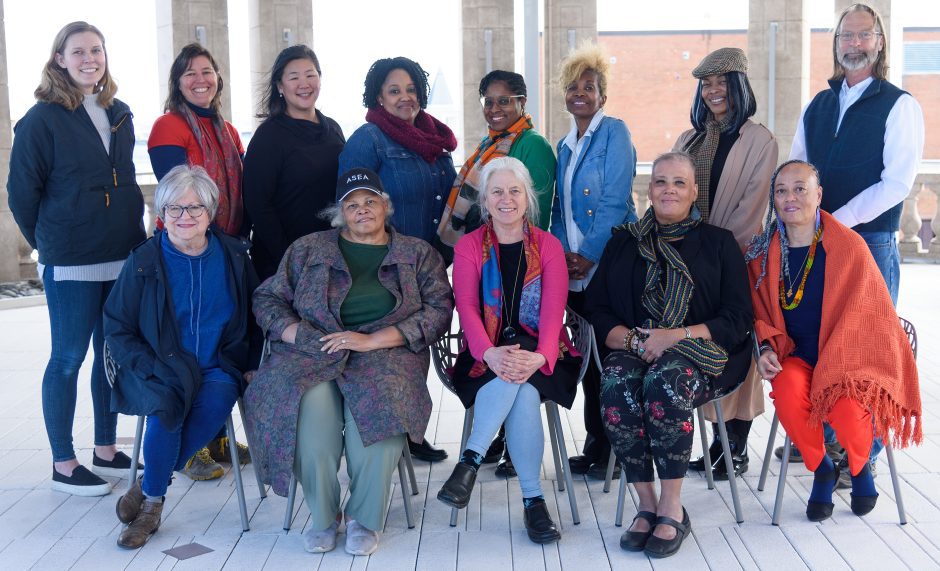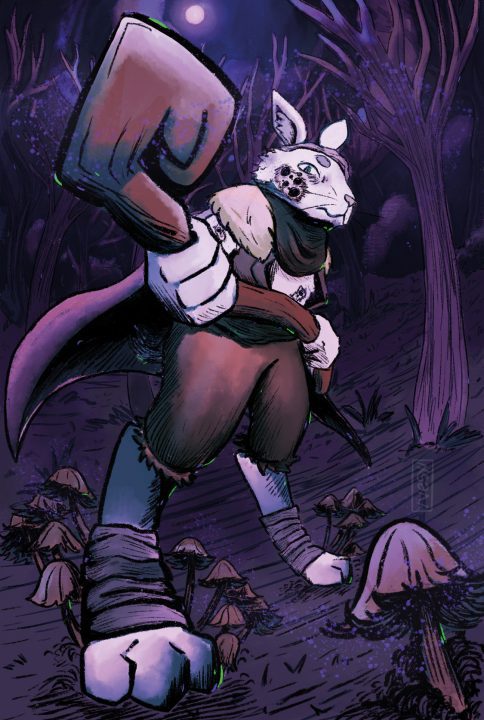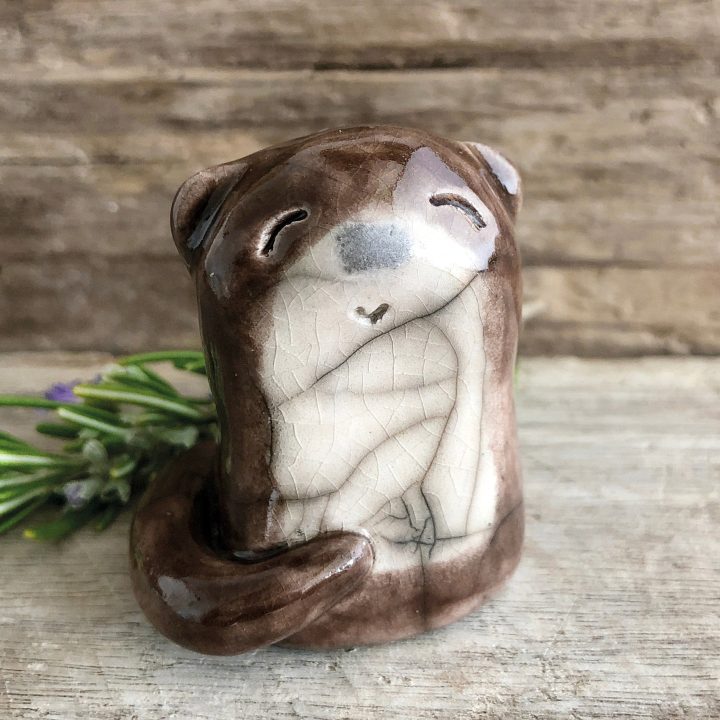The role of ‘artisan’ is often thought of as a largely solitary existence, conjuring images of hours spent alone in a workshop or studio. Face- to-face interactions with customers aren’t even a requirement any longer, with the proliferation of online marketplaces.
So it is perhaps even more remarkable that over the past year, an international community of makers has come together for a huge creative undertaking – the Artisans Cooperative.
The catalyst for the creation of the co-op was the April 2022 Etsy strike, where thousands of sellers took their listings down from the platform, one of the largest online marketplaces in the world. The strike was launched in protest against increased sellers’ fees: a 30% hike which came during the same week Etsy announced record profits.
“It’s hard to think of something that doesn’t sound more like just, frankly, corporate greed,” says Valerie, one of Artisans Cooperative’s founding directors.
Valerie, who runs a natural leather shop called Walnut Studiolo, says the strike had “a surprisingly large impact”.

“There were media articles around the world about it. It was even in major publications, like the Wall Street Journal …It was brought up at investor meetings.”
Despite this, Etsy didn’t change its position, reduce the fee or, Valerie explains, even respond to the sellers.
But out of this action came a movement of artisans who wanted something better, now connected in their cause.
Valerie describes the strike as a “galvanising moment” that gave people a chance to gather together. Soon after, multiple conversations were taking place, all asking: What next? One answer was the idea of setting up a co-operative alternative to Etsy.
“I had been reading a lot about co-operatives at the time. I couldn’t let go of the idea and I know I wasn’t the only one thinking that way,” says Valerie.
“I was seeing comments about it on social media […] I knew that a lot of people were thinking the same thing. And so that gave me the courage to move forward.”
More people began to find out about and join the collective as it set about developing the co-op, including writer and illustrator Airic.

“I’ve always been interested in storytelling and the different mediums that you can use since I was a kid,” says Airic.
“The older I got, the more I got into it and started exploring the methods that I prefer.”
Airic first joined the Artisans Cooperative as a volunteer, contributing their skills as a writer to the co-op’s blog.
“I have a lot of artist friends and I thought it was a really cool thing that everyone in the co-op was trying to get started. So I was like, yeah, I want to try to help where I can.”
Airic then became a co-op member, and is now looking at getting a shop set up on the Artisans Cooperative platform.
Lily, another of the co-op’s founding members, creates Raku ceramic sculptures, with a focus on Shinto and shamanic nature spirits.
“For me, it’s a natural expression of my creativity” says Lily. Through her work, Lily aims to help people “reconnect to themselves, to nature […] to something other than the everyday that has become our whole existence.”
After accidentally stumbling into a tech team meeting through the co-op’s Discord server, Lily has now become a key member of the team, using her knowledge of UK and EU tax and legislation to advise the co-op.

In early 2023, the group received support from the US Federation of Worker Cooperatives and the start.coop Accelerator programme to get the co-op going.
An initial US$10,000 (£7,900) seed fund was provided by start.coop to pay for a lawyer to take them through the process of incorporation, which then enabled the co-op to start raising funds through membership.
They brought in $50,000 (£39,500) in just two months, smashing their original target of $25,000 (£19,800). This, explains Valerie, became the co-op’s “real seed money”, which paid for the development of the platform and the necessary tools needed to launch the marketplace.
As a multi-stakeholder co-op, the organisation offers two different types of membership – Artisans and Supporters. The full cost of membership buy-ins 1,000 ‘points’ for Artisans and 100 points for Supporters.
Points can either be bought for $1 (£0.79) each, or earned through contributing time to the co-op – the route taken by both Lily and Airic.
Artisan members get lower fees and additional marketing benefits on the marketplace, while all members gain voting and financial rights, including the ability to run for and elect the board of directors.
“Reading the co-operative principles for the first time was a revelation,” says Valerie.
“I think that artists in general tend to think that way already. And to see that somebody already thought it out and wrote it down was like, ‘Awesome, yes, we agree. Yes, yes, yes, yes, and seven times yes!’”
Similar alignment was found in the platform co-op movement.
“Once again, we could rely on the co-operative community to have already thought through these things really well and we were happy to adopt the conclusions,” says Valerie.
In 2022, Artisans Cooperative published a “bill of rights” for their platform, which draws on work from the Platform Cooperativism Consortium as well as Trebor Scholz and Nathan Schneider’s book on the topic, Ours to Hack and to Own.
Some of the key commitments in the post included transparency around the algorithms and data being used, portability of product listings, customer relationships, and reviews, and the fostering of connections between sellers.
This idea of social connectedness is one that members of Artisans Cooperative found was lacking in Etsy’s set up.
“Like any other big tech marketplace, they’re not necessarily trying to allow their vendors to connect and get to know each other,” Valerie explains.
“They may have forums and stuff, but there are levels of anonymity and control that they keep over it. There’s an information asymmetry in not allowing us our own ways to really network and get to know each other.”
Lily also highlights the importance of the co-op’s online community, which she says has “become like a little kind of home for a lot of people”.
“The community that we have on Discord is a really friendly, accepting environment. There are a lot of people with various diversities, differences, disabilities, and everyone is accepted and welcome. I think that that is such a hugely important thing […] I really hope that as we grow that continues.”
For more information, see artisans.coop